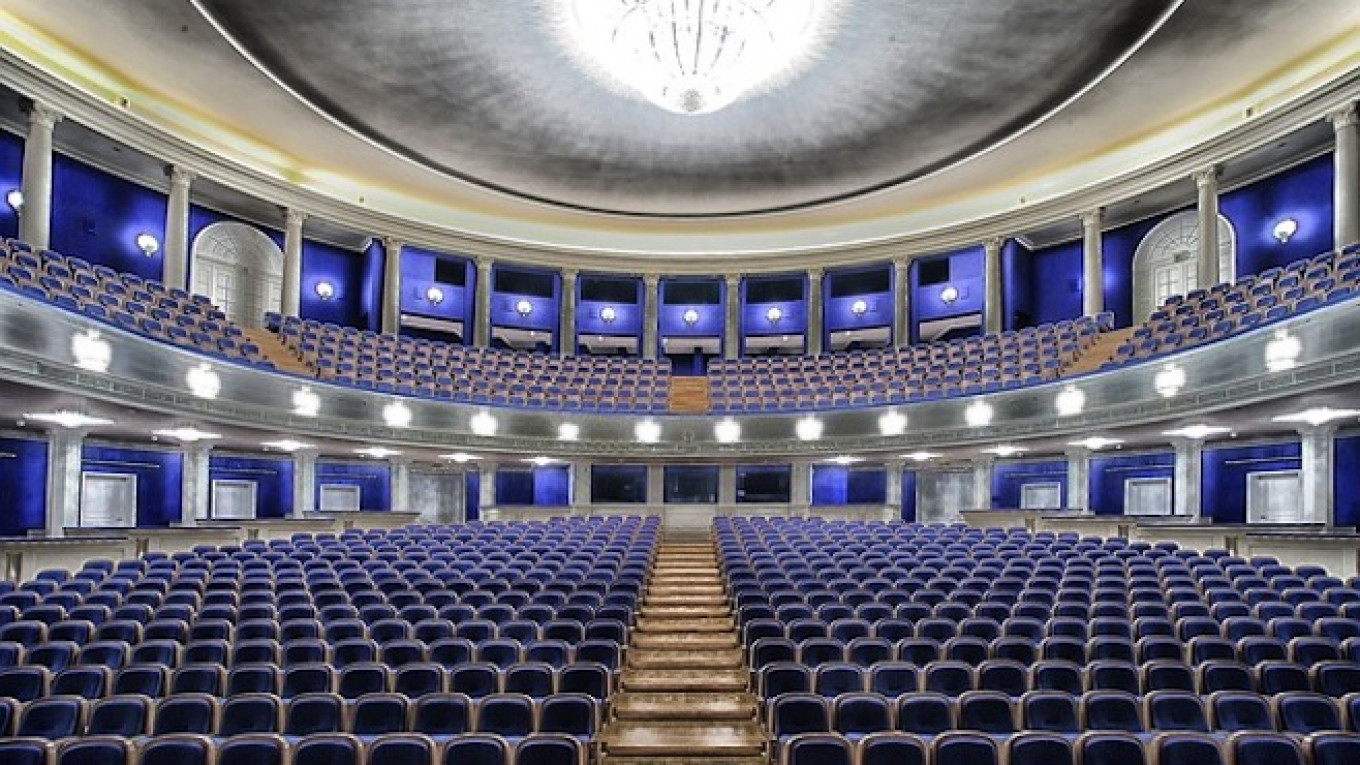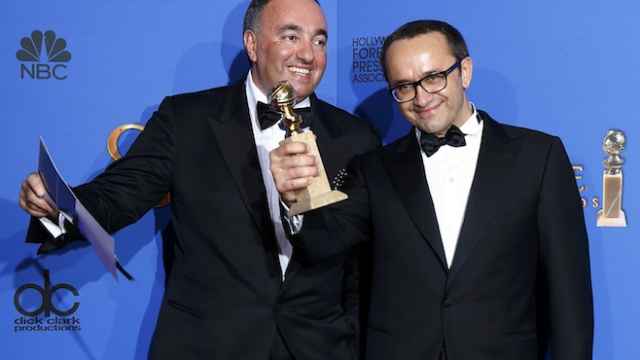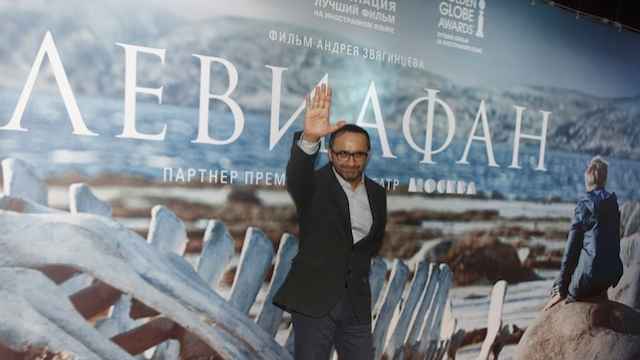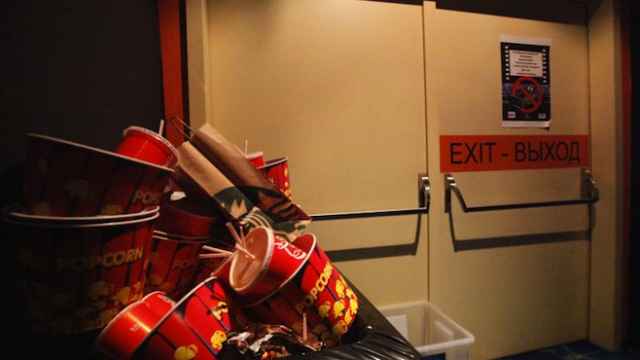Interwoven with references to Vladimir Putin, a contemporary take on the 19th century Russian classic "Boris Godunov" charmed and offended a Moscow theatre audience in equal measure with its tale of murderous usurper-turned-ruthless tsar.
The play has divided public opinion in the same way as Russia's Oscar-nominated film "Leviathan". Both challenge people's perceptions of life in Russia, leaving some commending them for honesty and others arguing they demean Russia just as it needs to be defended from a critical West.
Boris Godunov, written by Russian poet Alexander Pushkin, is loosely based on historical events in 16th century Russia. Director Konstantin Bogomolov, 39, has brought the tale into the modern world, spicing it up with multimedia tricks and Skype conversations.
Early in the play, as people learn that Godunov has killed the legitimate heir, a screen shows a caption repeated 10 times, sending a nervous giggle through an increasingly uncomfortable audience: "The people gathered on the central square. The people are waiting to be told what next. The people are stupid scum."
When Godunov then places the crown on his own head, the screen shows 2012 video footage of Putin's convoy driving through Moscow's empty streets to the Kremlin for his third presidential inauguration.
But Bogomolov said the play was not primarily intended as a satire of Putin. Rather, it is rather a look at how modern Russia sees and talks about itself.
"It's a bit of mockery of the political situation in general, of course. But mostly it's about the aesthetics of society, how we speak of what's going on," he said.
"By having a go at the aesthetics of the society, rather than political questions, you hit the people harder."
While there was a standing ovation at the end of the play, not everyone stayed long enough to witness that.
"I will never get this modern art, it makes no sense whatsoever," said one woman as she queued to get her fur coat to leave the state-financed Lenkom theatre in central Moscow during interval.
For the director, who took part in 2011 and 2012 protests against Putin and voted for Kremlin critic Alexei Navalny in Moscow mayor elections in 2013, the play shows some of his disillusionment with a lack of appetite for change in Russia.
But the play offers an equally critical portrayal of Russian emigres' discontent with the state of affairs in their homeland, of media and their coverage of Ukraine and of attempts by foreigners to force Russia to accept their ways.
A senior Russian government official was among those who left early. "It was really hard to watch," he said.
A Message from The Moscow Times:
Dear readers,
We are facing unprecedented challenges. Russia's Prosecutor General's Office has designated The Moscow Times as an "undesirable" organization, criminalizing our work and putting our staff at risk of prosecution. This follows our earlier unjust labeling as a "foreign agent."
These actions are direct attempts to silence independent journalism in Russia. The authorities claim our work "discredits the decisions of the Russian leadership." We see things differently: we strive to provide accurate, unbiased reporting on Russia.
We, the journalists of The Moscow Times, refuse to be silenced. But to continue our work, we need your help.
Your support, no matter how small, makes a world of difference. If you can, please support us monthly starting from just $2. It's quick to set up, and every contribution makes a significant impact.
By supporting The Moscow Times, you're defending open, independent journalism in the face of repression. Thank you for standing with us.
Remind me later.






